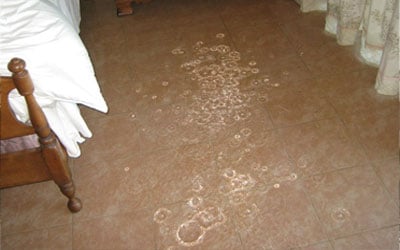
One of the worst things that can happen to a home is flooding in your basement. Unfortunately, it could happen at any time, regardless of the weather. Because basements are at the lowest part of the house, they could flood even if you do not live in a flood-prone location. It could be a nightmare for homeowners as the water could flow through the walls or foundations and bring untold damage to the house.
Before this happens, make sure to keep an eye out for the signs of flooding in your basement. Here are the most common causes of basement flooding to be aware of:
Reason 1: Broken Water Supply Line
In some cases, you might not have control over the factors that could lead to flooding. One of them is a broken pipeline from your local or regional water supplier. When this happens, you have no choice but to mitigate the damage to your basement and home. Remove as much furniture as you can. Make sure to dry and clean the basement as soon as the pipe problem gets fixed. It might also benefit you to call restoration experts to prevent mold growth.
Reason 2: Improperly Sealed Basement
One or two coats of basement sealer could protect your space from damage. If a basement has been waterproofed, it could reduce the risk of flooding. Proper sealing can give you control over how water interacts with your basement. It can reduce the chances of water entering your basement. However, improper basement sealing will not provide the same protection. One heavy storm and the water could flow freely into your home.
Reason 3: Failing Downspouts
Downspouts are pipes that carry rainwater from your roof to the drain or directly to the ground. It helps the gutter prevent damage to the home’s foundations. Though it is situated far away from the basement, it could still cause flooding in that room. If the downspouts are not installed properly, the water from the roof will pool on the ground. When it pours, this water could soften the soil and seep into your basement over time.
Reason 4: Your Gutter Is Filled With Debris
One more problem that could affect your basement is a gutter full of dirt and debris. When this part of your drainage system is not regularly cleaned, it will not function as it should. The water could run off your roof. When this happens, the overflowing water could drip along the sides of the house and seep into your home’s foundation.
Reason 5: The Snow Is Melting
You should not only be cautious during rainy days. Even the winter season could potentially damage your basement. Snow turns to water when it melts. If your property is surrounded by melting snow, whether on your roof or backyard, the liquid could eventually enter your house if not managed well. Should your house experience lots of snow, shovel it away and ensure that your foundation has no cracks or damage.
Conclusion
Basements are always at risk of flooding. If you do not want to lose your furniture or let your house suffer from damage, you need to make sure that it is well-protected against flooding, leaking, and other water problems. Conduct home inspections regularly and take the proper precautions necessary to prevent such issues.
Should your basement be a victim of flooding and you need water damage removal in Los Angeles, we can help. Restoration Masters Expert provides 24/7 and immediate response to your flood damage emergencies. Contact us at 877-246-2951.





